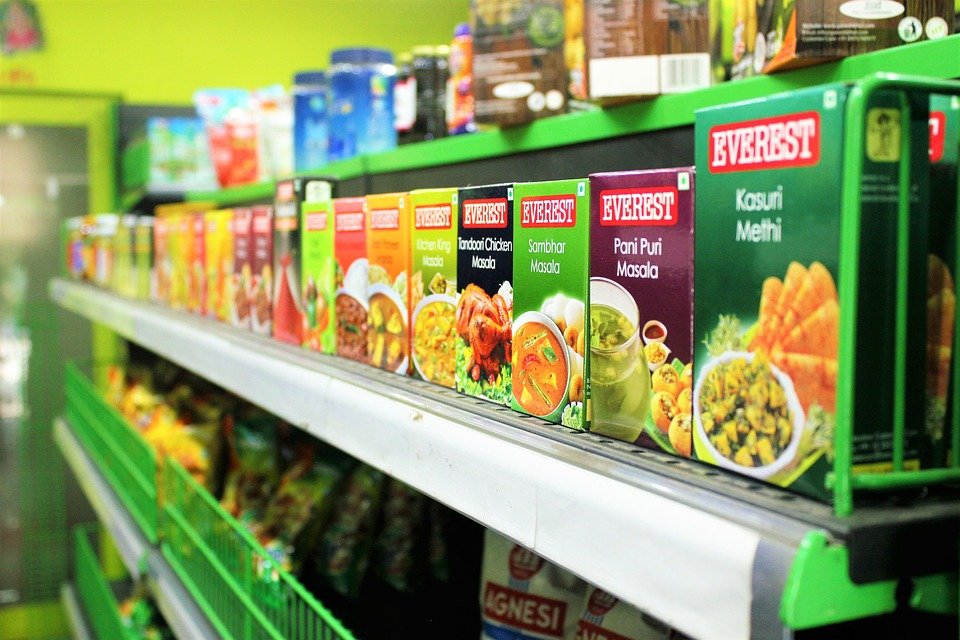5 Trends For F & B Brands To Watch Out For In 2018
The F&B Industry is undergoing a massive transformation. As more and more brands enter the scene, and as new and unique demands of customers rise, there is a growing need for the players in the industry to reinvent themselves. Wider issues like obesity, food-waste, carbon footprint concerns, ethical sourcing, and rising sugar levels have all come into the spotlight and the need for brands to ensure public health has become key considerations. Let’s look at 5 trends that F & B brands need to watch out for in 2018:
- Healthy Alternatives: As health concerns rise across the world, 2018 will see F&B brands making health their top most priority. Brands will make headway in incorporating holistic health and wellness into their products and ensure their products are healthy and nutritious. With consumers seeking natural, wholesome, guilt-free, great-tasting products that ensure healthy indulgence, lactose-free and gluten-free products will become increasingly popular. In a bid to go healthy, Coca-Cola has been cutting sugars in their drinks by almost 30%. Pizza Hut aims to eliminate MSG and added trans-fats from their menu wherever possible.
- Minimal Processing: As health concerns emerge, consumers are becoming increasingly aware of the environmental and health implications of eating too much red meat, salt and sugar – the global sugar consumption in 2016 was a whopping 180 million metric tonnes. Brands that deliver high quality, no-preservative, low-processed foods in their most natural form stand to make it big in 2018. Organic products, cultured meat, natural and clean products, and plant-based alternatives will become preferred healthy options for millennials. The worldwide market for organic food & beverages could cross $200 billion by 2020. Kraft, which had been using artificial colours and flavours in its iconic Mac and Cheese quietly rolled out its newly formulated product with no artificial preservatives, flavours or dyes. Hershey is in the process of removing genetically modified beet sugar from its chocolates and switching to cane sugar instead.
- Veganism: Personal health, climate change, animal welfare, and carbon footprint concerns are all pushing the world towards vegetarianism and veganism. As people become more aware of healthy and ethical lifestyle choices, several popular food brands are now entering the vegan space in order to meet the needs of the growing vegan population. In the coming years, red meat may no longer be the star of the plate; instead, beans on a bed of quinoa could be the swanky new ingredient at every restaurant. 2018 will see the F&B brands that offer egg substitutes, vegetarian meat, almond milk, tofu desserts, coconut yogurt, and vegan butter rising in popularity. Food Delivery service Just Eat surveyed 20 million deliveries and reported that the demand for vegan and vegetarian food had increased by 987% in 2017. And nearly 40% of dairy style products now contain vegan alternatives.
- Local sourcing: As consumers become more aware of their food preferences and the impact sourcing has on the environment, local or sustainable sourcing are becoming popular movements. Trends such as “farm-to-fork” and “stem to root” are gaining immense popularity for they support local sourcing and help reduce food waste. 2018 will see brands that place value on sustainability and transparency, and that support local produce becoming more and more sought-after. For selling Snickers in India, Mars International is sourcing peanut – one of the main ingredients for the chocolate – from Rajkot. PepsiCo India does contract manufacturing of potatoes in Punjab for its potato chips.
- Brand Transparency: The highly-aware and Internet-savvy consumer of today is placing immense value on brand transparency – not just in marketing, but also processing and supply chain. According to the Sustainability 2017 report from the Hartman Group, 69% of consumers demand more information about a company’s personal, social, economic, and environmental practices. “Informed and savvy consumers are demanding more from the foods they eat, and some are prioritizing ingredients over brands,” says Andrew Mandzy, Director of Strategic Health and Wellness Insights, Nielsen. The demand for products that are made by brands that care may be just what consumers are looking for this year – brands they can believe in and trust. Brands that are true to the company’s history, values, and attributes, have no secret ingredients and those that feature ethical claims on their packages are going to make it big in 2018. Tesco uses a traceability database that enables consumers to get sourcing information on various chicken, eggs, bakery, and frozen food products. Nestle India is executing a web series titled “From Our Kitchen to Your Kitchen”, where consumers will be invited to learn about products and how they are made.
Supporting Mindfulness
Today’s consumers look for a connection with the foods they eat; they want to know where foods come from, how they have been sourced, and how healthy they are. Mindfulness will be a hot trend in 2018 for it is this body-mind connection that will influence F&B brands to improve the transparency of their products.
These movements present a challenge for brands that have defined their purpose around more superficial values. They will have to look deep within themselves to find that health-oriented purpose or that historic passion for sustainability the brand has always believed in. In order to keep up with the new consumer’s focus on health and sustainability, F&B brands will need to showcase their positive valence and communicate how they can add meaningful value to their suppliers, their employees, and the consumers. It is this Purpose that will make people ally themselves with the brand. The key is, to tell the truth, especially about nutrition, to the conscious consumer.
For more on how your Brand can capitalize on these emerging trends, write to us at info@lokusdesign.com.

